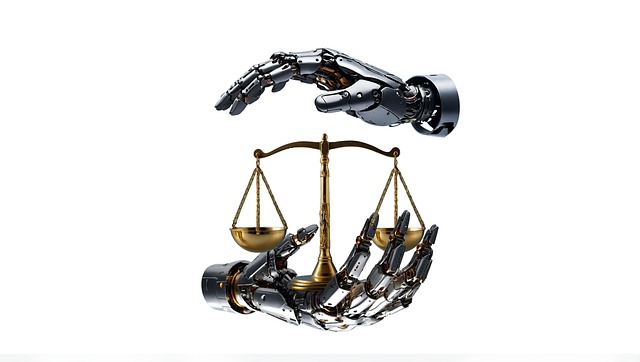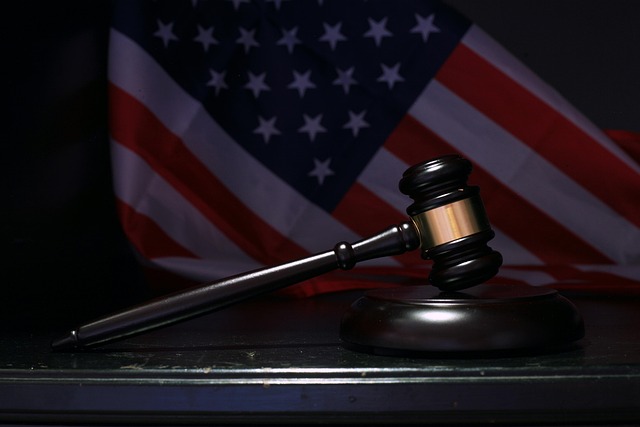Corporate Crime Investigations (CCI) is a meticulous process combining forensic accounting, legal expertise, and data analysis to uncover corporate wrongdoing. Investigators scrutinize financial records, interview personnel, and analyze structures while respecting the Sixth Amendment Rights in Court. These rights, including impartial jury trials and confronting witnesses, are vital for fairness and due process, benefiting both corporations and individuals. Balancing justice and business interests is challenging due to complex white-collar crimes; success depends on navigating these complexities while upholding individual rights. Effective criminal defenses require meticulous evidence handling and strategic legal approaches to combat globalized business crimes, preserving ethical integrity and the justice system.
Corporate Crime Investigations: Uncovering Complex Webs of Deception
In today’s business landscape, corporate crime investigations have become increasingly prevalent. This article delves into the intricate process of uncovering illicit activities within organizations, focusing on a key aspect: the application of Sixth Amendment rights in court. We explore how legal protections interact with investigations, highlighting the delicate balance between justice and business interests. By examining challenges and ethical considerations, we shed light on ensuring fair practices in corporate crime cases.
- Understanding Corporate Crime Investigations: A Deep Dive into the Process
- The Role of Legal Rights: Sixth Amendment Rights in Corporate Crime Cases
- Balancing Justice and Business: Challenges and Ethical Considerations in Investigations
Understanding Corporate Crime Investigations: A Deep Dive into the Process

Corporate Crime Investigations delve into complex financial transactions, corporate governance failures, and unethical practices within organizations. The process demands a meticulous approach, combining forensic accounting, legal expertise, and robust data analysis to uncover wrongdoing. Investigators must navigate a delicate balance between upholding the rule of law and respecting the Sixth Amendment Rights in Court, ensuring due process for all parties involved.
This involves scrutinizing financial records, interviewing key personnel, and analyzing corporate structures. The goal is not merely to punish but also to reform, holding individuals and respective business accountable while fostering transparency across the philanthropic and political communities. By presenting compelling evidence and employing strategic legal defenses, winning challenging defense verdicts becomes a testament to the investigation’s integrity and effectiveness.
The Role of Legal Rights: Sixth Amendment Rights in Corporate Crime Cases

In corporate crime investigations, understanding the legal rights of individuals and entities is paramount. The Sixth Amendment Rights in Court play a crucial role, ensuring fairness and due process for all parties involved. Across the country, these rights have been instrumental in shaping white-collar defense strategies, providing protections for both corporate and individual clients alike.
The Sixth Amendment guarantees the right to a speedy trial by an impartial jury, the right to be informed of the charges, and the right to confront witnesses. These provisions are especially significant in complex corporate cases where allegations can span years and involve numerous documents and witnesses. Ensuring these rights are upheld is essential for maintaining the integrity of the justice system and fostering trust among corporate and individual stakeholders alike.
Balancing Justice and Business: Challenges and Ethical Considerations in Investigations

In the complex landscape of corporate crime investigations, a delicate balance must be struck between administering justice and upholding business interests. This challenge is exacerbated by the unique dynamics of white-collar crime, often involving sophisticated schemes and intricate financial networks. Investigators and prosecutors face the daunting task of navigating these complexities while ensuring that the rights of individuals, as guaranteed by the Sixth Amendment, are respected in court. The general criminal defense strategy plays a pivotal role here, demanding a careful approach to gather evidence, maintain procedural integrity, and protect against unfair prejudice.
An unprecedented track record of successful corporate crime prosecutions highlights the evolving nature of legal strategies. As business practices become increasingly global and sophisticated, so must the methods employed to combat fraud, corruption, and other illicit activities. This requires not only a deep understanding of financial markets and regulatory frameworks but also an ethical commitment to preserving the integrity of the justice system. By adhering to these principles, investigations can deliver both accountability for criminals and stability in the corporate sector.
Corporate crime investigations are complex, requiring a delicate balance between justice and business interests. As we’ve explored, understanding the process involves delving into legal rights, particularly the Sixth Amendment’s protection in court. While these rights ensure fairness for individuals accused of crimes, they present challenges when applied to corporations. Navigating these complexities demands ethical considerations that underscore the importance of impartial investigations. By recognizing the unique aspects of corporate crime cases, we can enhance justice and maintain trust in our legal system.






